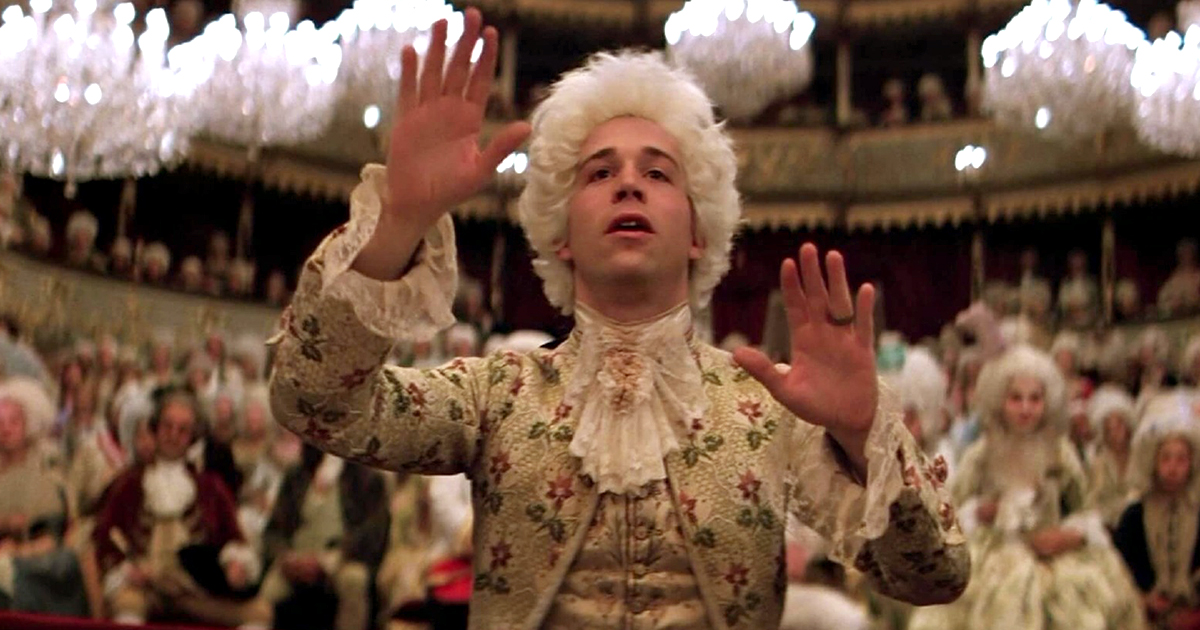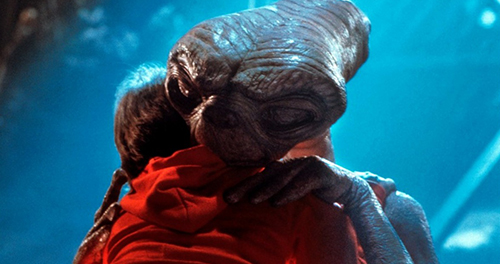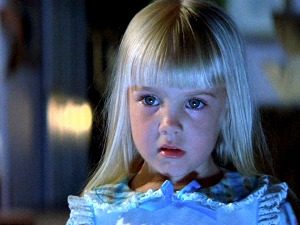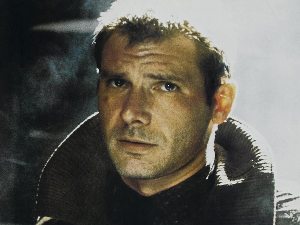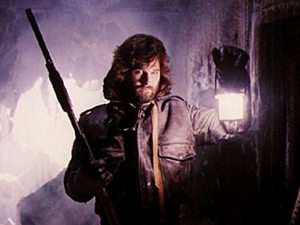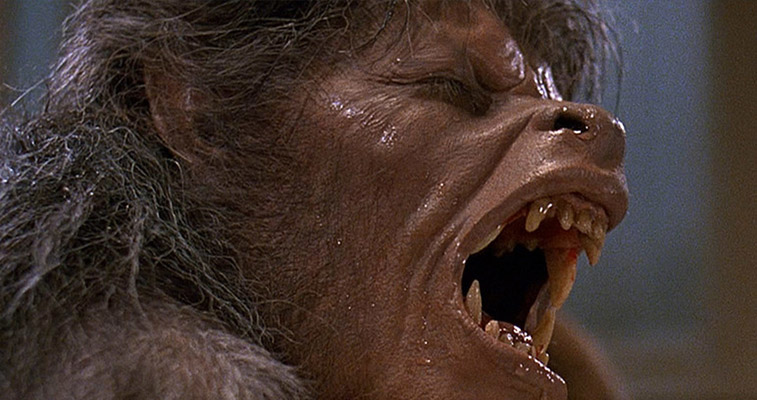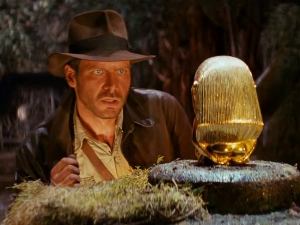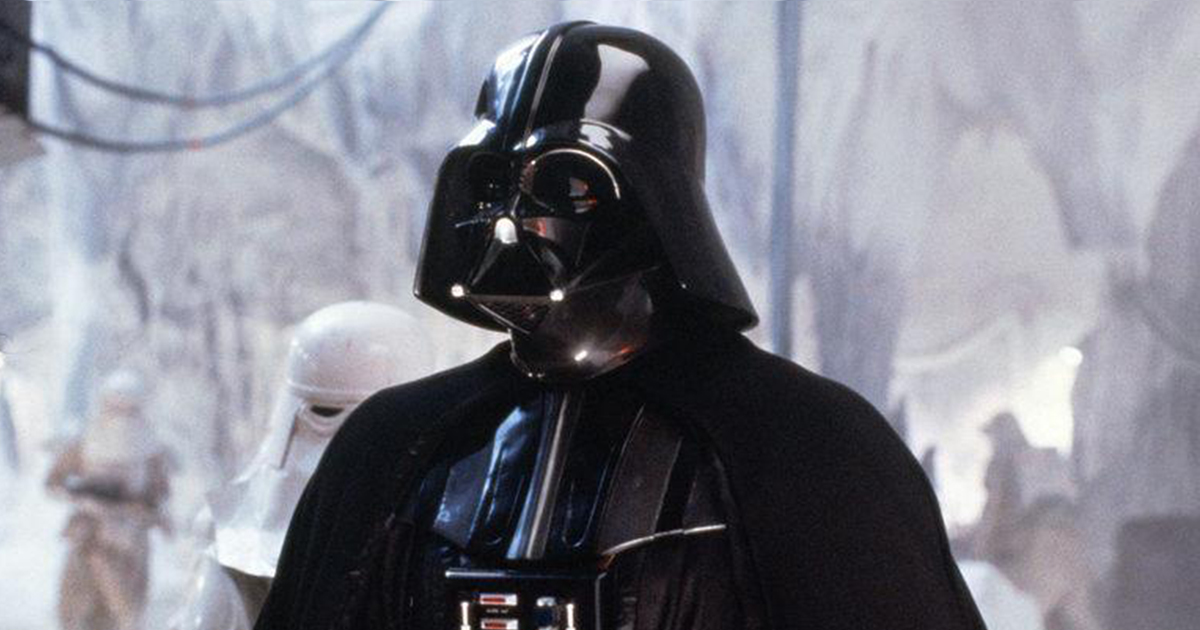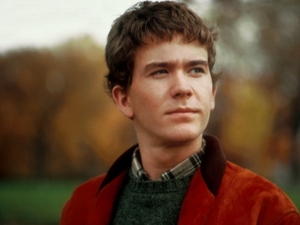Amadeus (1984)
[10]
Straight biographies rarely make great film, but by filtering the subject through another man’s envy, director Milos Forman (One Flew Over the Cuckoo’s Nest) delivers one of the best bio-films I’ve ever seen. This isn’t a film about a composer and his music (how boring would that be?) — it’s a film about an insanely jealous contemporary named Salieri. Salieri, played brilliantly by F. Murray Abraham, turns Mozart’s life and accomplishments into his own personal battle with God. Just watch Abraham pretend to be Mozart’s best friend, all while plotting to destroy him, and you quickly appreciate why the man won an Oscar for his performance.

